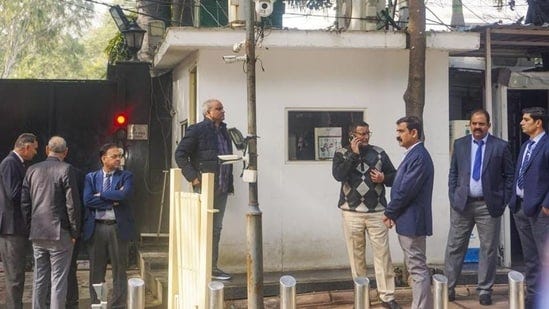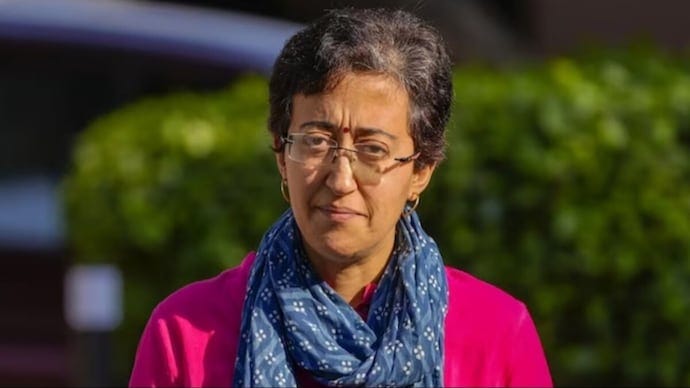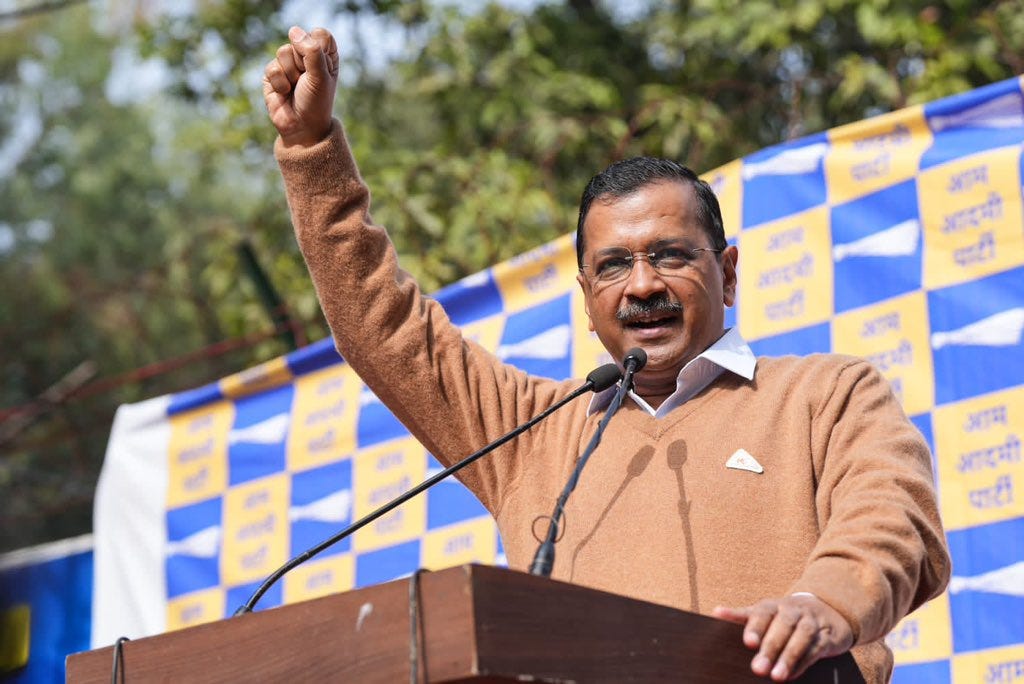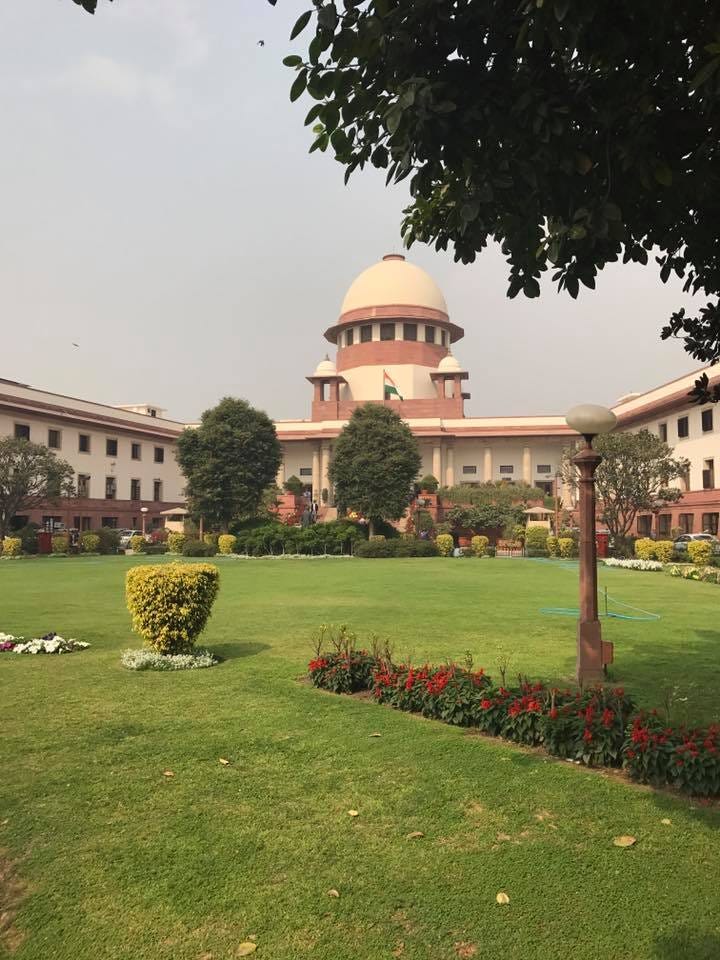Serving Notice on Arvind Kejriwal by Delhi Police, Crime Branch
The Law, Logic, and the Logistics behind sections 161 and 41A of the CrPC.

Introduction
A team from the Crime Branch of the Delhi Police visited the official residence of Delhi Chief Minister, Arvind Kejriwal, on Friday and Saturday (February 2 and 3), amidst high drama and media coverage. The visit aimed to serve a notice or summons as part of their probe into certain serious accusations made by the Aam Aadmi Party (AAP). These allegations claimed that its Members of the Legislative Assembly (MLAs) were being offered substantial sums of money—specifically, 25 crore rupees per MLA—by the Bharatiya Janata Party (BJP) to defect and destabilize the Kejriwal government. This article seeks to unravel the complex layers of law, logic, and logistics surrounding this notable legal action, while steering clear of the parallel political controversy.
The Standoff
Incident Overview
The “encounter” (pun intended) between the Delhi Police officers and the staff at Kejriwal's camp office was reportedly tense. The core of the dispute lay in the service of the summons/notice on Mr. Arvind Kejriwal personally, despite his staff's willingness to accept it on his behalf and furnish a written acknowledgement as receipt thereof. This situation raises several questions about the procedural necessities and the legalities involved in serving such notices, and we intended to address these issues.
Background and Allegations
Origins of the Controversy
The controversy traces back to January 27, 2024, when the AAP, through its verified X handle, tweeted allegations of financial inducements offered to its MLAs by the BJP. This claim, translated below to English from Hindi for accessibility, ignited a fierce political and legal debate.
BJP's Operation Lotus 2.0‼️
BJP has contacted 7 MLAs from AAP
They were told that after arresting Mr. Kejriwal, they will break one MLA after another to bring down the Delhi government
Talks have already happened with 21 MLAs, An offer of 25 crores has been made to each MLA
Their aim is to arrest Mr. Kejriwal and bring down the government
They have done the same before in Maharashtra, Karnataka, Goa, Madhya Pradesh
Our response to this tweet, barely hours later, advocating for an immediate FIR and the formation of a Special Investigation Team (SIT), underscored the severity of the allegations. We said:
“This is indeed a very serious matter— Delhi Police should immediately register an FIR, under the appropriate sections of the law on the basis of the tweet of the honourable Chief Minister, and set up a high-level SIT to investigate the matter and bring the culprits to book, expeditiously.”
We had further added that once the FIR is filed, the police will be obligated to question each MLA under the provisions of the CrPC, thereby revealing the stances of all involved parties to the nation.
Legal and Political Implications
Investigative Measures
It now seems that the Delhi Unit of the BJP, while strongly refuting the AAP's allegations, has asked the Delhi Police to determine whether anyone, and if so, who, made this significant monetary offer. If proven, such an action(s) would amount to serious criminal offences under various statutes. If disproven, a presumption of false and misleading information being given to the police arises, which in itself is also a punishable offence.
This request set into motion a series of events that led to the Delhi Police attempting to serve notice to Mr. Kejriwal personally, a process fraught with logistical challenges and legal questions.
Unfolding Events
The Logjam and Resolution
The process of serving the notice faced a significant delay, enduring nearly six hours on Saturday (February 3), before the notice was finally served. We choose not to engage in the detailed legal distinctions between the terms "delivered" and "served". A statement from a Delhi Police officer emphasized, "The notice has been served to him (Kejriwal), and he has three days to respond in writing." The Crime Branch has requested Kejriwal to identify the AAP MLAs allegedly approached by the BJP.
Just minutes before the publication of this article, the Delhi Police Crime Branch visited Delhi Minister Atishi's residence on Sunday to serve her a notice regarding the Aam Aadmi Party's allegations of the BJP's attempt to poach seven AAP MLAs. Reports indicate that Atishi was not present when the police arrived. Nevertheless, the Crime Branch team awaited her return. Should she not return in time, the notice is expected to be served to Atishi's Officer on Special Duty (OSD).
It is sufficient to acknowledge that this event not only highlights the procedural complexities but also raises important questions about the obligations and rights of the involved parties.
Queries and Clarifications
Reader Queries
As these events unfolded, and our focus was on the Section 174 IPC complaint filed on Saturday (February 3) by the ED against Mr. Arvind Kejriwal for repeated and successive non-compliance with its summons in the Delhi Excise Money-laundering investigation, we received a flood of inquiries from our valued readers to throw light on this matter. We have sorted out these queries and will attempt to address them in a question-and-answer format to ensure both brevity and clarity.
1. Can Summons Under the Provisions of the CrPC Be Served on or Delivered to a Family Member?
Under the provisions of the Criminal Procedure Code (CrPC), a summons—whether issued by the police, a magistrate, or a judge—should generally be served directly on the individual it is addressed to. Nonetheless, the CrPC does include specific provisions for the service of summons on corporate bodies and societies. In such cases, service can be effected by delivering the summons to the secretary, local manager, or any principal officer of the corporation, or by sending it through registered post to the corporation's chief officer. If there is a refusal to accept the summons, the process server is permitted to affix the notice or summons in a visible location at the residence of the intended recipient. Additionally, public proclamation in the area through the beat of a drum may be employed as a means to ensure notice is served.
2. Understanding Statements Recorded Under Section 161 of the CrPC
A statement recorded by the police under Section 161 of the Code of Criminal Procedure (CrPC) is not made under oath, and the individual providing the statement is not required to sign it. Such statements do not hold substantive evidentiary value for the prosecution but can be utilized by the defense to challenge or contradict the statements of prosecution witnesses. In instances where a prosecution witness turns hostile, the Public Prosecutor may, with permission from the court, cross-examine the witness using their statement made under Section 161 CrPC.
The key points regarding a Section 161 CrPC statement are:
Oath: The statement is not made under oath.
Signature: There is no requirement for the person making the statement to sign it.
Retraction: Given that it is not made under oath, the person can resile or retract from the statement made under Section 161 CrPC.
Evidentiary Value: The statement itself cannot be used as evidence for conviction. However, it holds significance for proving inconsistencies or omissions in the testimony of witnesses during the trial, or where a recovery of, say a murder weapon, is made in pursuance thereto.
Usage in Court: While not admissible for the purpose of conviction, these statements can be pivotal for the defense or even the prosecution (in specific scenarios like proving contradictions) during the trial.
Essentially, a Section 161 CrPC statement is an important tool in the judicial process, primarily for the purpose of cross-examination and identifying discrepancies in the testimonies presented in court.
3. Insights into Section 41A of the CrPC: Notice of Appearance Before a Police Officer
Section 41A of the Code of Criminal Procedure (CrPC) is a crucial legal provision designed to mitigate the need for direct arrests, thereby acting as a procedural safeguard. It specifically addresses the issuance of a notice of appearance to individuals, instructing them to present themselves before a police officer. This provision was introduced to ensure that the rights of the accused are protected and to minimize the potential for unnecessary or unjustified arrests.
Key aspects of Section 41A CrPC include:
Objective: The primary aim is to allow the police officer to conduct a preliminary investigation without the need to arrest the person immediately. This approach helps in assessing whether the arrest is essential based on the evidence gathered during this preliminary phase.
Issuance of Notice: A notice under Section 41A is issued in circumstances where, according to Section 41(1) of the CrPC, the arrest of the person is not immediately necessary. It outlines the requirement for the individual to appear before a police officer at a specified time and place for the purpose of investigation.
Contents of the Notice: The notice must clearly inform the individual of the specifics of the appearance—where and when they need to appear—and the implications of failing to comply with the notice.
Consequences of Non-Compliance: Failure to adhere to the instructions detailed in the notice can lead to legal consequences, potentially including arrest, underlining the importance of compliance.
Protective Measure: Section 41A serves as a protective measure, emphasizing the principle of arrest as a last resort. It seeks to balance the necessity of effective law enforcement with the protection of individual rights, reducing the impact of arrest procedures on the accused.
In essence, Section 41A CrPC represents a significant step towards more humane and rights-focused policing, ensuring that arrests are made judiciously and only when absolutely necessary, while also providing a clear framework for individuals to engage with investigations without the immediate pressure of arrest.
4. Can sections 161 and 41A be invoked by a police officer, before registering an FIR?
Sections 161 and 41A of the Code of Criminal Procedure (CrPC) serve distinct functions within the investigative process, and their applicability varies based on the stage of the investigation.
Section 161 of the CrPC allows a police officer to record statements from witnesses during the course of an investigation. This provision comes into play only after an FIR has been registered, marking the formal commencement of the investigation. The essence of Section 161 is that it enables the gathering of information from witnesses or others who may have knowledge relevant to the case, but these statements are not made under oath and thus carry specific limitations in terms of their evidentiary value in court.
On the other hand, Section 41A introduces a mechanism intended to prevent unnecessary arrests. It can be invoked by the police both after the registration of an FIR and during the preliminary inquiry stage. The primary goal of issuing a notice under Section 41A is to require the person in question to appear before the police officer, thereby allowing the officer to assess whether the allegations warrant an arrest or further investigation. This provision is a safeguard designed to minimize unwarranted detention and to ensure that arrests are made judiciously, based on a clear need established through preliminary inquiry or ongoing investigation.
In summary, while Section 161 is activated post-FIR for the purpose of recording statements during the investigation, Section 41A can be utilized by the police both before and after registering an FIR, offering a procedural tool to assess the necessity of arresting the accused based on the credibility of the allegations against them.
Summing Up
The incident involving the serving of notice to Arvind Kejriwal by the Delhi Police underscores the intricate interplay between law enforcement procedures, political dynamics, and the fundamental legal principles governing such actions. As this situation continues to evolve, it serves as a potent example of the challenges and considerations inherent in the enforcement of law and order within the political context of India. As this “serial” unfolds, all eyes are fixed on the February 7, when the other strand— ED’s formal criminal complaint under section 174 IPC against Arvind Kejriwal for repeated non-compliance of summons— unrolls during further hearing in the court of the Additional Metropolitan Magistrate, Rouse Avenue, New Delhi.
Stay tuned.





